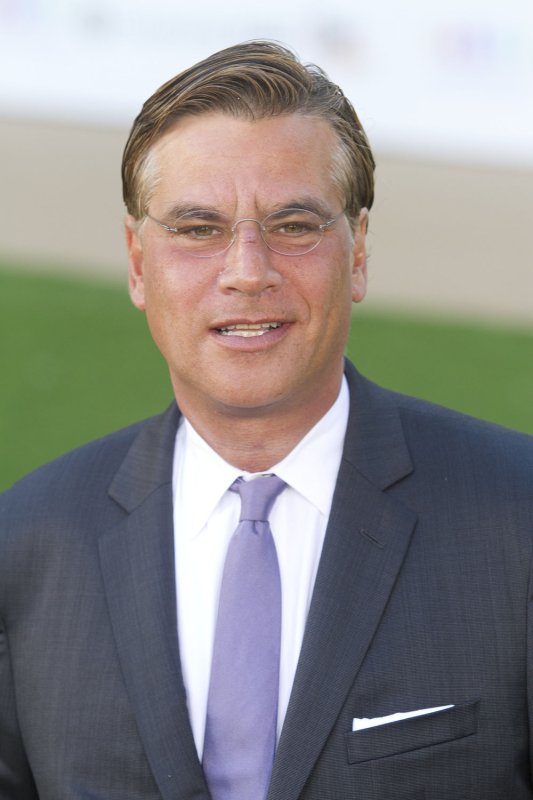Aaron Sorkin arrives at the premiere of "Moneyball" at the Paramount Theatre of the Arts in Oakland, California on September 19, 2011. UPI/Mohammad Kheirkhah |
License Photo
NEW YORK, June 18 (UPI) -- Hollywood writer-producer Aaron Sorkin says he's not as smart as his characters are, he just knows how to "imitate the sound of intelligence."
Sorkin penned the screenplay for "The Social Network" and is the creator of "The West Wing," "Sports Night" and "Studio 60 on the Sunset Strip." His new show "The Newsroom" is to premiere Sunday on HBO.
"All of my training and experience and education has been in play-writing," Sorkin told New York magazine's Vulture column. "I have no political sophistication or media sophistication, so if I was talking to Howard Kurtz or you, you could easily dismantle whatever argument I'm going to make. It is a layman's amateur argument. Oftentimes, I write about people who are smarter than I am and know more than I do, and I am able to do that simply by being tutored almost phonetically, sometimes. I'm used to it. I grew up surrounded by people who are smarter than I am, and I like the sound of intelligence. I can imitate that sound, but it's not organic. It's not intelligence. It's my phonetic ability to imitate the sound of intelligence."
Asked if he considers "The Newsroom," "Studio 60" and "Sports Night" a trilogy about the making of TV, Sorkin told Vulture: "You'd be closer to the truth to say it's a quartet, with 'The West Wing,' that lives in that place of wish fulfillment, what Will [in 'The Newsroom'] calls 'a mission to civilize.'
"And it keeps failing miserably -- he keeps slipping on banana peels. I write this kind of character a lot, beginning with the first play and the first movie I wrote, 'A Few Good Men,' the Tom Cruise character, or Andrew Shepherd in 'The American President,' or, in a lot of episodes, [President Jed] Bartlet in 'The West Wing' and, to an extent, Charlie Wilson in 'Charlie Wilson's War.' I'm writing about not the difference between good and bad but the difference between good and great. You take a guy who's a perfectly nice guy. He's doing fine. He's not breaking any laws. And he covets the fact that people like him, and he's popular. He covets the fact that he doesn't have a lot of enemies. And you make him have to risk that by reaching higher. When Will goes from being blandly neutral about everything to making his own opinions clear, it's a transformation that viewers of cable news will certainly recognize. But those guys sometimes become grandiose blowhards."















